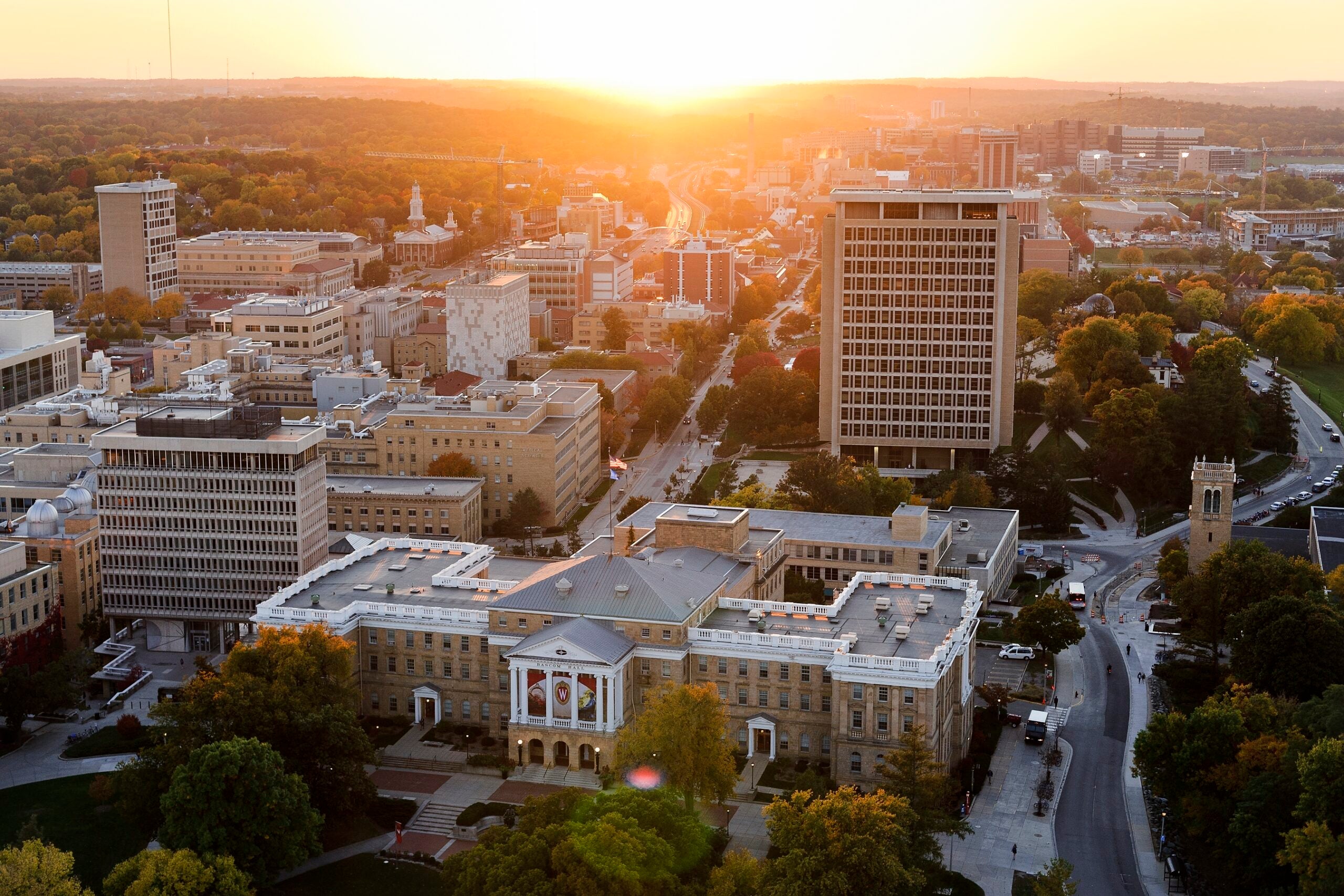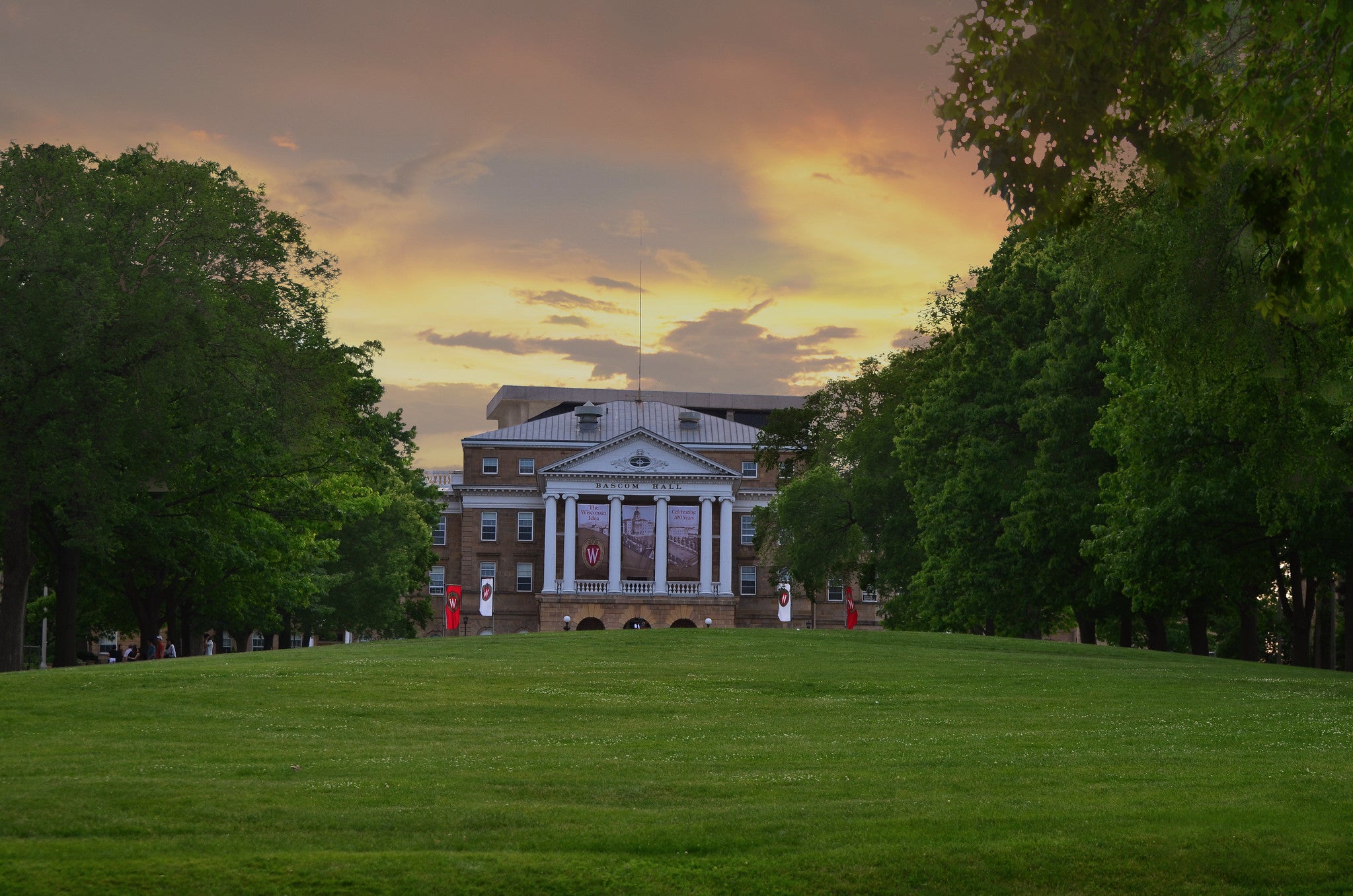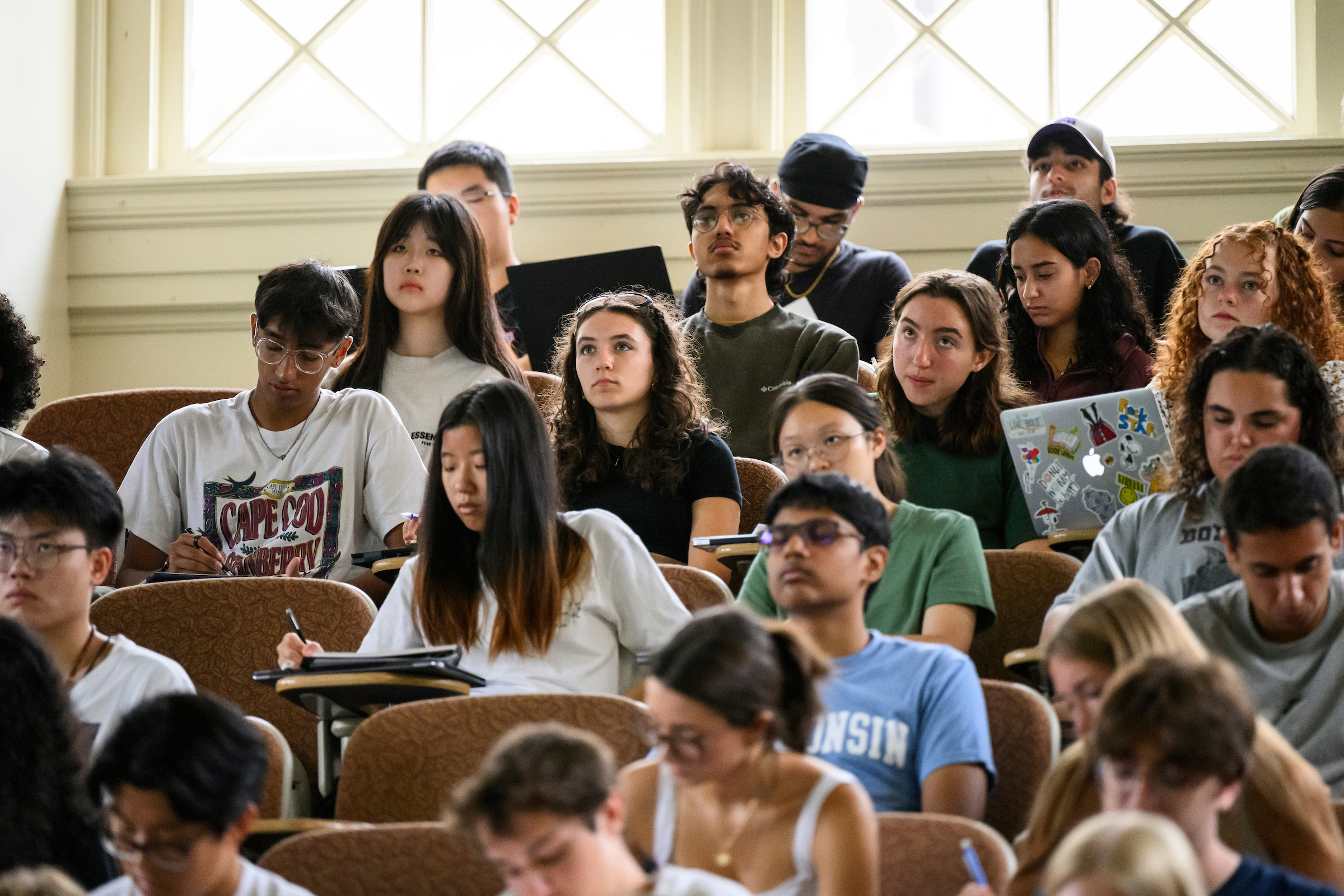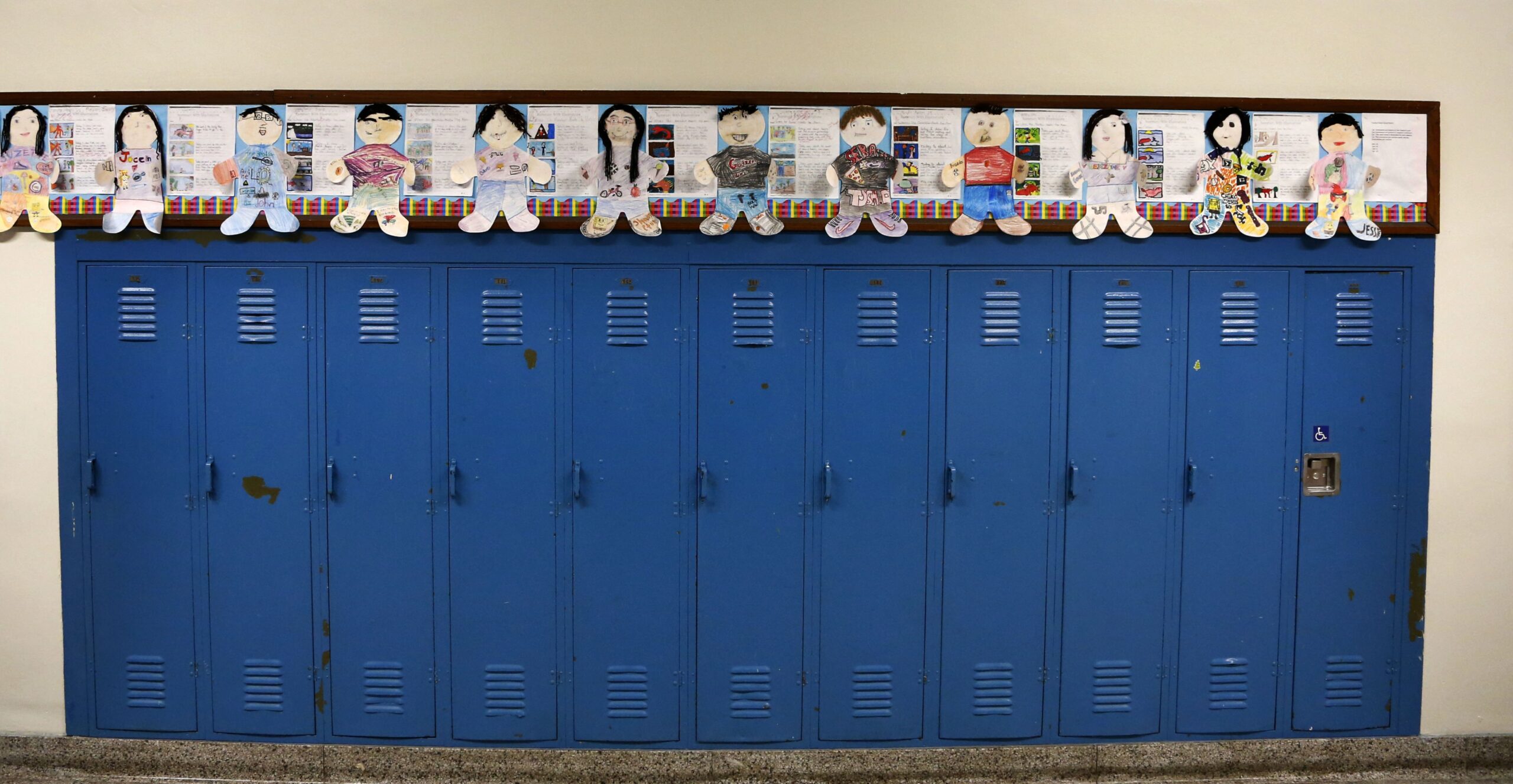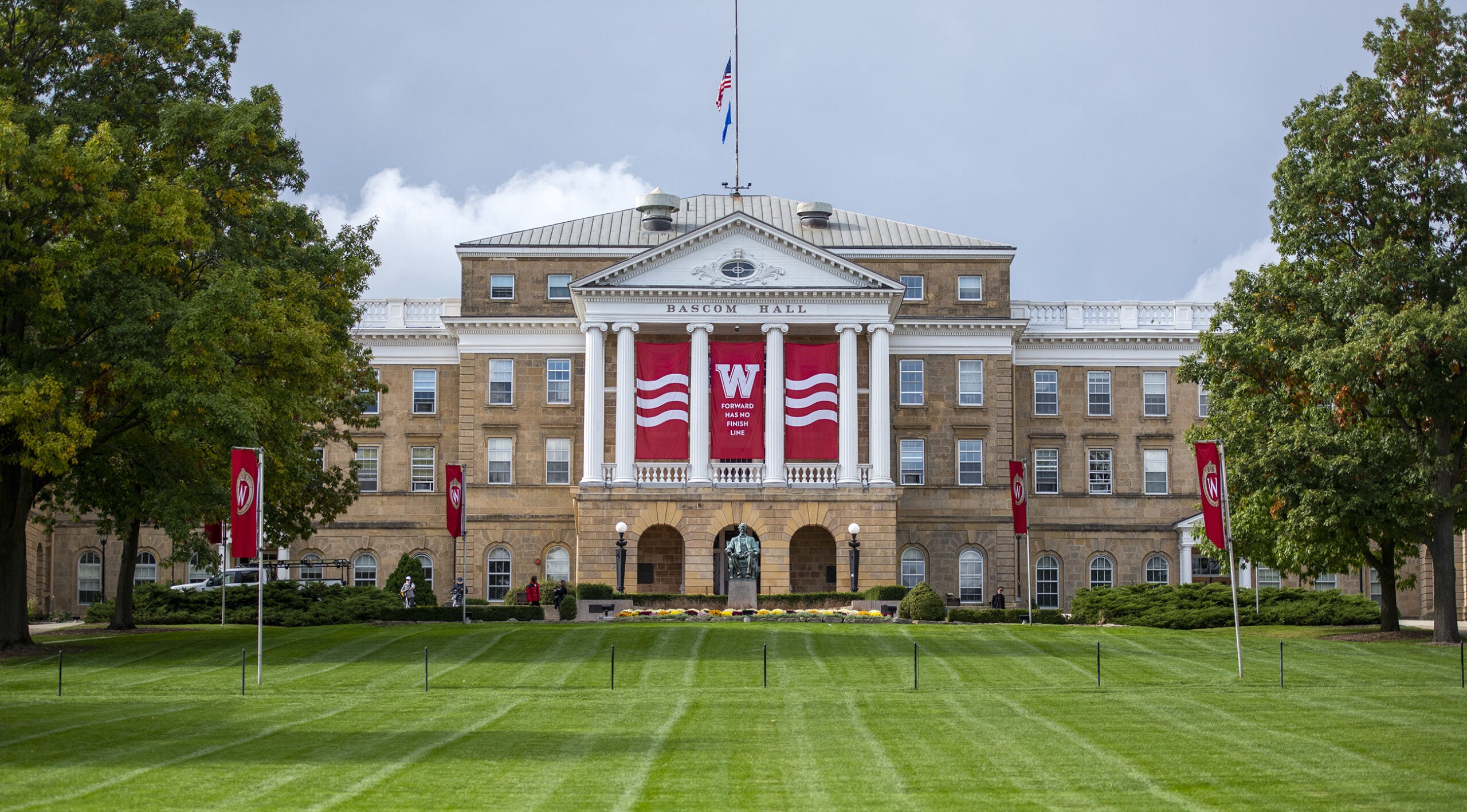The Universities of Wisconsin will have the opportunity to give pay raises to its 34,000 employees and build a new $347 million engineering building in Madison under a deal approved Wednesday by the Board of Regents. But the universities will also freeze DEI staffing through 2026 and eliminate or refocus about 40 positions focused on diversity.
The vote was the second in five days by the board, and follows a months-long stalemate between the board and Republican Assembly Speaker Robin Vos, who blocked funding for the raises over objections to campus diversity, equity and inclusion programs and staffing.
After failing 8-9 on Saturday, an identical version of the compromise passed by a vote of 11-6. Board of Regents president Karen Walsh, vice president Amy Bogost and student regent Jennifer Staton flipped their votes after previously rejecting the deal. Wisconsin Department of Public Instruction Superintendent Jill Underly, who serves on the board in an non-appointed role, did not attend the virtual meeting because of “inconsistent internet access” in Europe.
Stay informed on the latest news
Sign up for WPR’s email newsletter.
Before the roll call vote, Walsh called it one of the board’s “toughest votes in memory, and it came at a time when our Universities of Wisconsin campuses are being challenged like never before.”
“I want to assure you of this, our commitment to students, faculty and staff of different races, creeds, religions, veterans status, socioeconomic status or political beliefs is a core value of the Universities of Wisconsin,” Walsh said. “This proposal does not put that in jeopardy. We are not turning away from this core value.”
Staton, who served as a combat medic in Afghanistan with the U.S. Army before attending UW-Parkside, had sharp words for Vos and his comments earlier this year about DEI standing for “division, exclusion and indoctrination.” After identifying as a Hispanic veteran who worked in “one of the most diverse environments” she said Republican lawmakers aren’t attacking businesses committed to diversity initiatives.
“Let me speak to Speaker Vos directly, because not only am I a veteran, I’m a military spouse,” Staton said. “Don’t you dare sit there and use that term as an inflammatory tool for your political game, when my husband and myself have sacrificed so much not only for our country but for the army, and we are still making those sacrifices today, over 16 years later, and we are only one family of many.”
The vote on Wednesday followed demands from Democratic lawmakers, campus faculty and student groups that regents stand by commitments to DEI and reject the offer.
During a press conference hours before the board’s vote, members of the Wisconsin Legislative Black Caucus said students would be harmed because of political pressure.
“This deal is part of a systematic racist deal,” said Rep. Dora Drake, D-Milwaukee. “And it is discriminatory toward students, faculty and staff of color, because their experiences should never have a price tag and should never be bought out on what inclusion looks like on our campuses.”
In the end, the calls to reject the deal weren’t enough to keep it from happening during the board’s special meeting Wednesday afternoon.
Under terms of the compromise, Republican lawmakers are agreeing to release $800 million for cost-of-living raises and campus building projects, including a UW-Madison engineering building that was rejected by Republicans earlier this year. The pay raises were already approved in the state budget, which passed in late June with Republican and Democratic support.

In exchange, Universities of Wisconsin President Jay Rothman, UW-Madison Chancellor Jennifer Mnookin and now the Board of Regents have agreed to freeze DEI staffing through 2026 while “restructuring and reimagining” at least 43 DEI positions “with a primary focus on academic and student success.”
UW-Madison has agreed to end its Target of Opportunity program, which aims to recruit and hire more diverse faculty. In its place, the campus will launch a new program to recruit faculty “regardless of their identity or ethnic/racial background.”
The UW System will also support GOP legislation that will require campuses to automatically admit top academic performers from high schools around Wisconsin. For UW-Madison, that means admitting the top 5 percent of high school graduates. All other campuses will be required to admit the top 10 percent of graduates.
Also, UW-Madison will seek donations to create a new leadership position to focus on things like “conservative political thought, classical economic theory, or classical liberalism, depending on the donor’s interest.”
GOP leader called diversity programs ‘overt racism’
Vos and other Republicans have railed against diversity, equity and inclusion programs this year. When he addressed the Republican Party of Wisconsin’s state convention in June, the speaker claimed DEI is akin to liberal indoctrination of students and represents “overt racism” on campuses.
“If we hold our ground, and we stand strong enough, we’re going to be the pebble in the pond that ripples all across the country and hopefully begins to turn this crap around,” Vos told the crowd. “So, we can’t give in. This is probably, to me, the single most important issue that we are facing as a people, as a nation, and really, humanity.”
In September, Vos announced he would block the pre-approved UW raises in an attempt to pressure administrators to eliminate DEI programs and staff. The Speaker followed through on Oct. 17, the Legislature’s Joint Committee on Employee Relations, which Vos co-chairs, which approved raises for other state employees while refusing to take up those for UW workers in October.
A lawsuit regarding the pay raise holdup, filed by Democratic Governor Tony Evers, is pending before the Wisconsin Supreme Court, which has yet to decide whether to hear it. The suit argues Republicans are “unconstitutionally and unlawfully obstructing basic government functions” by blocking the pre-approved raises.
Senate leader said unconfirmed regents could face removal
Not present during either of the board’s virtual votes on the deal was Regent Jill Underly, who sits on the body because of her role as secretary of the WIsconsin Department of Instruction. In a statement sent hours before the meeting, Wednesday, Underly called on Regents to delay the vote because she is out of the country “with very inconsistent internet access and is unavailable at the scheduled meeting time.” A DPI spokesperson told WPR Underly is currently in Europe.
After the rejection of his deal, Vos told a conservative radio host on WISN-AM, Monday, that he hoped regents would “come to their senses” and reconsider the deal, which he said was his final offer.
State Senate Majority Leader Devin LeMahieu, R-Oostburg, issued a statement Monday scolding regents for opposing the compromise and said they should reconsider.
“Without meaningful reform, there will not be more investment made into the University of Wisconsin System,” LeMahieu said.
In a social media post the same day, Wisconsin Senate President Chris Kapenga, R-Delafield, hinted that Republicans may fire four regents appointed by Evers, including Bogost, who have not yet been confirmed by the state Senate.
“It’s good to know before their upcoming Senate confirmation votes that several Regents chose their sacred ideology over getting our students ready for their careers,” Kapenga said.
With the new compromise now in effect, Republican lawmakers have vowed to release the blockaded raises along with $32 million in funding for workforce development initiatives before Dec. 31. Funding for the Madison engineering building, renovations at Vos’ alma matter UW-Whitewater and other building projects will be approved before the end of the legislative session in February.
In a statement after the vote, Vos said “Republicans know this is just the first step in what will be our continuing efforts to eliminate these cancerous DEI practices on UW campuses.”
Editor’s note: WPR staff are employees of UW-Madison.
Wisconsin Public Radio, © Copyright 2025, Board of Regents of the University of Wisconsin System and Wisconsin Educational Communications Board.
